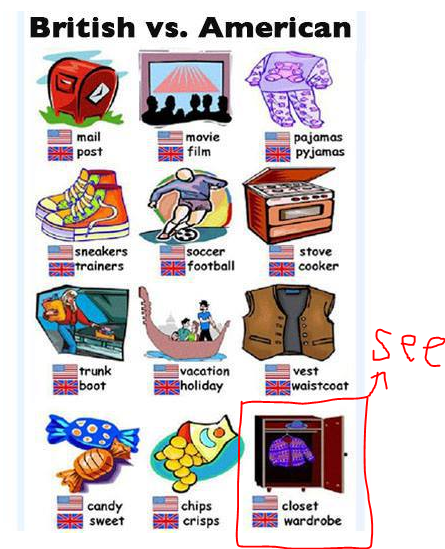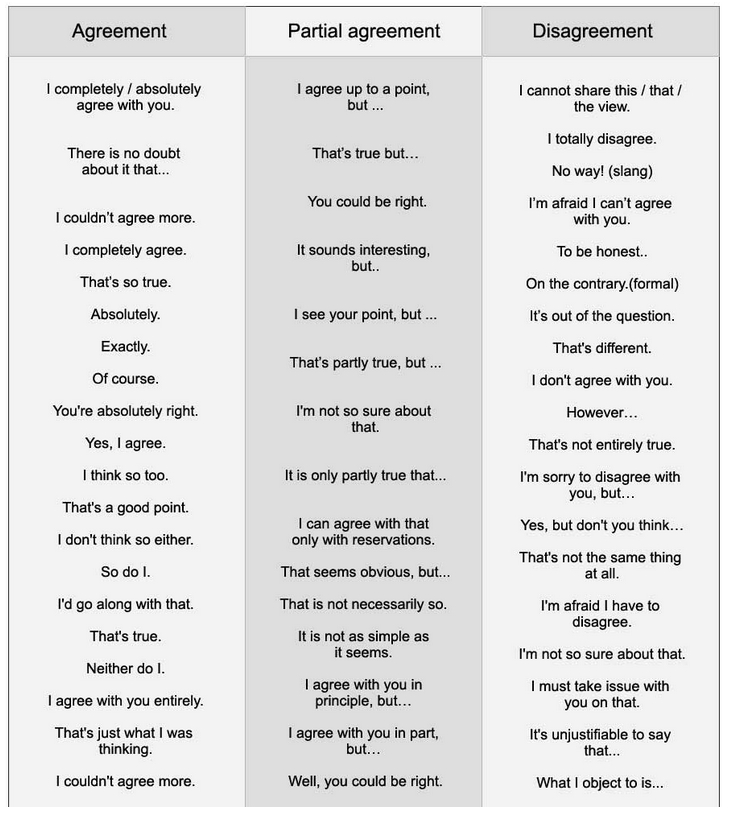Дэлхийн зах зээл дээр гарахын төлөө ажилла(монгол гэдэг улсыг дэлхийд таниулахын төлөө),зөвхөн монголын хүрээнд сэтгэхээ боль!!!
drop down menu
Thursday, July 31, 2014
Sunday, July 27, 2014
difference between "i am home", "i am in home", and "i am at home"
Difference between 'I am home' and 'I am at home'
- Yes, there is marginal difference. The preposition ‘at’ indicates that the noun ‘home’ that follows it, establishes a point in relation to which another object ‘I’ is positioned.
So: “I am at home” always means that I am positioned or staying at home, and this is normally used.
Where as the term “I am home” can be used to mean; I am safe after some incident. Look at the following sentences:
My friend had a surgery for removal of a tumor. I am happy to hear that he is home and doing well.
Friday, July 25, 2014
Thursday, July 24, 2014
English Grammar - Have something done, get smth done, want smth done
this video explains "have something done" very well. because it contains some definite examples which are real examples
How to write numbers in English – 6 common mistakes
i think she who is in video explains very well about numbers. so if you watch this video, you will understand a lot for writing numbers properly
Exclamations in English!!!
how + adj what + a + adj + noun
How exciting! what a exciting movie! she is pretty you have big eyes.
how pretty she is! what big eyes you have!
Tuesday, July 22, 2014
difference between temper and mood
temper - (дүрсхийсэн авир, түргэн уур, түргэн авир, түргэн зан) i think temper means just becoming angry easily
1) [countable, usually singular, uncountable] if someone has a temper, they become angry very easily
---- He must learn to control his temper.
--- a violent/short/quick, etc. temper
2) [countable, usually singular] a short period of feeling very angry
---- to fly into a temper
3) [countable] the way that you are feeling at a particular time, especially when you are feeling angry for a short time
---- Come back when you're in a better temper.
mood - (ааш зан, төлөв байдал, ариншин) i think mood means just feeling of someone at particular time
1) [countable] the way you are feeling at a particular time
---- She's in a good mood today (= happy and friendly).
---- He's always in a bad mood (= unhappy, or angry and impatient).
2) [countable] a period of being angry or impatient
---- I wonder why he's in such a mood today.
3) [singular] the way a group of people feel about something; the atmosphere in a place or among a group of people
---- The mood of the meeting was distinctly pessimistic.
1) [countable, usually singular, uncountable] if someone has a temper, they become angry very easily
---- He must learn to control his temper.
--- a violent/short/quick, etc. temper
2) [countable, usually singular] a short period of feeling very angry
---- to fly into a temper
3) [countable] the way that you are feeling at a particular time, especially when you are feeling angry for a short time
---- Come back when you're in a better temper.
mood - (ааш зан, төлөв байдал, ариншин) i think mood means just feeling of someone at particular time
1) [countable] the way you are feeling at a particular time
---- She's in a good mood today (= happy and friendly).
---- He's always in a bad mood (= unhappy, or angry and impatient).
2) [countable] a period of being angry or impatient
---- I wonder why he's in such a mood today.
3) [singular] the way a group of people feel about something; the atmosphere in a place or among a group of people
---- The mood of the meeting was distinctly pessimistic.
difference between spot and stain
spot - (хир толбо, арилгахад амархан толбо) A "spot" is generally small (often circular) and localized. A "stain" can be much larger and irregularly shaped. But you could probably use them interchangeably in most cases. spot is usually darker in color, These usually are removed during the cleaning process.
1) a small round area that has a different color or feels different from the surface it is on
---- The male bird has a red spot on its beak.
2) a small dirty mark on something
---- His jacket was covered with spots of mud.
3) a particular area or place
---- He showed me the exact spot where he had asked her to marry him.
stain - (сэв толбо, арилгахад хэцүү толбо)A "spot" is generally small (often circular) and localized. A "stain" can be much larger and irregularly shaped. But you could probably use them interchangeably in most cases. Stains sometimes can be removed with specialty effort, but not by the regular cleaning process.
1) [countable] a dirty mark on something, that is difficult to remove
---- a blood/a coffee/an ink, etc. stain
--- How can I get this stain out?
1) a small round area that has a different color or feels different from the surface it is on
---- The male bird has a red spot on its beak.
2) a small dirty mark on something
---- His jacket was covered with spots of mud.
3) a particular area or place
---- He showed me the exact spot where he had asked her to marry him.
stain - (сэв толбо, арилгахад хэцүү толбо)A "spot" is generally small (often circular) and localized. A "stain" can be much larger and irregularly shaped. But you could probably use them interchangeably in most cases. Stains sometimes can be removed with specialty effort, but not by the regular cleaning process.
1) [countable] a dirty mark on something, that is difficult to remove
---- a blood/a coffee/an ink, etc. stain
--- How can I get this stain out?
IS THERE A DIFFERENCE BETWEEN A SPOT AND STAIN?
difference between cost and price
cost - (үнэ өртөг, өртөг зардал, өртөг хөлс)Cost is how much it is to produce something and price is how much you will buy it for. For example the cost of making one teacup is 1 USD, but you will buy it in a store for the price of 15 USD.
1) [countable, uncountable] the amount of money that you need in order to buy, make, or do something
---- I offered to pay the cost of the taxi.
---- the high/low cost of housing
---- A new computer system has been installed at a cost of$150,000.
2) [uncountable, singular] the effort, loss, or damage that is involved in order to do or achieve something
---- the terrible cost of the war in death and suffering
---- the environmental cost of nuclear power
price - (үнэ, үнэ цэнэ, ханш)Cost is how much it is to produce something and price is how much you will buy it for. For example the cost of making one teacup is 1 USD, but you will buy it in a store for the price of 15 USD.
1) uncountable and countable] the amount of money you have to pay for something
---- House prices in this area are falling.
2) [singular] the unpleasant things that you must suffer in order to be successful, free etc
---- He's never at home, but that's the price of success.
----- The awful boat journey was a small price to pay for freedom.
1) [countable, uncountable] the amount of money that you need in order to buy, make, or do something
---- I offered to pay the cost of the taxi.
---- the high/low cost of housing
---- A new computer system has been installed at a cost of$150,000.
2) [uncountable, singular] the effort, loss, or damage that is involved in order to do or achieve something
---- the terrible cost of the war in death and suffering
---- the environmental cost of nuclear power
price - (үнэ, үнэ цэнэ, ханш)Cost is how much it is to produce something and price is how much you will buy it for. For example the cost of making one teacup is 1 USD, but you will buy it in a store for the price of 15 USD.
1) uncountable and countable]
2) [singular]
----- The awful boat journey was a small price to pay for freedom.
difference between payment and fee
payment - (төлөлт, төлөөс, төлөгдөх мөнгө)
1) the act of paying someone or something or of being paid
payment (for something)
---- What method of payment do you prefer?
2) an amount of money that has been or must be paid
----- a cash payment
---- He agreed to make ten monthly payments of $150.
fee - (төлбөр,төлбөр мөнгө)
1) the act of paying someone or something or of being paid
payment (for something)
---- What method of payment do you prefer?
2) an amount of money that has been or must be paid
----- a cash payment
---- He agreed to make ten monthly payments of $150.
fee - (төлбөр,төлбөр мөнгө)
Tuesday, July 15, 2014
difference between reject, refuse, and deny
reject - (үл оошоох, үл зөвшөөрөх, үл тоомсорлох) 'refuse' has a sense of saying "NO" and "Refuse" is often followed by an infinitive (to + VERB) for example "I refuse to answer that question. No! I will not do it!"
refuse - (татгалзах) 'reject' is much stronger of saying "NO-NO". and Reject usually has a noun or noun phrase after it.
deny - (худал хэлэх, үл хүлээн зөвшөөрөх) The main meaning of 'deny' is to say that something is not true. and The opposite of 'deny' would be 'admit'. 'Deny' also has a less common use, which is quite similar to 'refuse'
refuse - (татгалзах) 'reject' is much stronger of saying "NO-NO". and Reject usually has a noun or noun phrase after it.
deny - (худал хэлэх, үл хүлээн зөвшөөрөх) The main meaning of 'deny' is to say that something is not true. and The opposite of 'deny' would be 'admit'. 'Deny' also has a less common use, which is quite similar to 'refuse'
What's the difference between Refuse and Reject?
- They are synonyms and can often be used in the same sentence. Both mean you do not receive or accept something (a physical thing or an idea, suggestion, etc.).
"I refused / rejected his job offer."
Difference in Grammar:
"Refuse" is often followed by an infinitive (to + VERB). Reject usually has a noun or noun phrase after it.
difference between cross and angry
cross - () i think we use it in British English
[usually before noun] especially British English (get/be cross (with somebody))
angry or annoyed
------ Sometimes I get very cross with the children.
angry - () i think we use it in American English. i think it is also commonly used
1) having strong feelings about something that you dislike very much or about an unfair situation
------ Her behavior really made me angry.
angry with/at someone
----- Please don't be angry with me. It wasn't my fault.
[usually before noun] especially British English (get/be cross (with somebody))
angry or annoyed
------ Sometimes I get very cross with the children.
angry - () i think we use it in American English. i think it is also commonly used
1) having strong feelings about something that you dislike very much or about an unfair situation
------ Her behavior really made me angry.
angry with/at someone
----- Please don't be angry with me. It wasn't my fault.
Difference between “cross with you” and “angry with you”
- Cross is similar to angry, only less intense. It is used to express anger at minor matters.
--- You left the cream out all night. Now I'm cross with you.
---- She left me for another man. I was so angry with her I wanted to scream.
- To be cross implies irritability(цухалдах, амархан унпууцах), with a potential response that is vaguely out of proportion, and surprising, given the nature of the transgression.
--- The Latin professor is a fair teacher, but don't cross him.
What is the difference between being angry, mad, furious, cross and annoyed?
difference between pathetic and miserable
pathetic - (өрөвдмөөр, өрөвдөлтэй) making you feel sympathy or sadness (ердөө чамайг feel unhappy, uncomfortable --- not very unhappy, or uncomfortable)
1) something or someone that is pathetic is so useless, unsuccessful, or weak
----- You're pathetic! Here, let me do it.
2) making you feel sympathy or sadness
------ a pathetic and lonely old man
3) (informal, disapproving) weak and not successful
------ a pathetic excuse
miserable - (хөөрхийлөлтэй, хөөрхийлөлтнй өрөвдмөөр амвтан) making you feel very unhappy, uncomfortable etc ( --- чамайг feel very unhappy or uncomfortable --- not just unhappy or uncomfortable).
1)extremely unhappy, for example because you feel lonely, cold, or badly treated :
----- We were cold, wet, and thoroughly miserable.
2) making you feel very unhappy, uncomfortable etc
----They endured hours of backbreaking work in miserable conditions.
3) [only before noun] (disapproving) (of a person) always unhappy, bad-tempered, and unfriendly
----- He was a miserable old man.
1) something or someone that is pathetic is so useless, unsuccessful, or weak
----- You're pathetic! Here, let me do it.
2) making you feel sympathy or sadness
------ a pathetic and lonely old man
3) (informal, disapproving) weak and not successful
------ a pathetic excuse
miserable - (хөөрхийлөлтэй, хөөрхийлөлтнй өрөвдмөөр амвтан) making you feel very unhappy, uncomfortable etc ( --- чамайг feel very unhappy or uncomfortable --- not just unhappy or uncomfortable).
1)
----- We were cold, wet, and thoroughly miserable.
2) making you feel very unhappy, uncomfortable etc
----They endured hours of backbreaking work in miserable conditions.
3) [only before noun] (disapproving) (of a person) always unhappy, bad-tempered, and unfriendly
----- He was a miserable old man.
Sunday, July 6, 2014
difference between personal and private
personal - (хувь хүнийн, тухайн хүнд хамааралтай)Personal : you can share with your friends and personal stuff can be showed to someone, like cellphone, ipad or a ps2. u love it, and its ur own personal thing
[only before noun] your own; not belonging to or connected with anyone else
--- personal details (= your name, age, etc.)
private - (хувийн хэрэг, хувийн амьний асуудал)Private : you keep it with yourself and others dont even know about it. its like a secret for example your financial status,credit card number, pin numbers
[usually before noun] belonging to or for the use of a particular person or group; not for public use
--- Those are my father's private papers.
[only before noun] your own; not belonging to or connected with anyone else
--- personal details (= your name, age, etc.)
private - (хувийн хэрэг, хувийн амьний асуудал)Private : you keep it with yourself and others dont even know about it. its like a secret for example your financial status,credit card number, pin numbers
[usually before noun] belonging to or for the use of a particular person or group; not for public use
--- Those are my father's private papers.
Personal/private
("I'd like to know what she's like in her personal/private life."
Is there a difference between "personal" and "private" in this particular example?)
- The two words are basically the same. There is perhaps only a slight shade of difference, in my opinion.
Private life could be talking about aspects of her life that very few or no one else knows about. A person's private life would include thoughts, habits, and activities that almost no one else knows about.
Personal life could be something that many more people would be aware of. This is not so restrictive, I think. A person's personal life might include more public aspects of their life: where they live, where they go out to eat, hobbies, what general or professional organizations they are active in, etc.
difference between trust and believe
trust - () “trust” means that we believe a person is honest and reliable in general.
believe - ()“believe” means that we believe someone’s statement.
believe - ()“believe” means that we believe someone’s statement.
What is the difference between trust and believe?
- i guess no difference bcoz when we find another word for trust we say believe and for believe we say trust
- both can be used interchangeably
- Trust: We can rely on others but can't completely.
Believe: We have total faith on the other one and we can act to every thing that he has said..
difference between confident and sure
confident - (итгэл дүүрэн, өөртөө итгэлтэй, өөртэй итгэл дүүрэн) completely sure, stronger and more definite word than sure and is more often used in positive statements, when you feel no anxiety.
sure - (итгэлтэй) is often used in negative statements and questions, because there is some doubt or anxiety over the matter.
These words all describe someone who knows without doubt that something is true or will happen.sure [not before noun] without any doubt that you are right, that something is true, that you will get something, or that something will happen: I'm not sure whether John is coming or not. Are you sure about that? The Orioles are sure to win this weekend.NOTE Sure is often used in negative statements and questions, because there is some doubt or anxiety over the matter. If there is no doubt, people often use know: I know (that) I left my bag here (= I have no doubt about it).confident completely sure that something will happen in the way that you want or expect: I'm confident that you'll get the job. The team is confident that they will win.NOTE Confident is a stronger and more definite word than sure and is more often used in positive statements, when you feel no anxiety.
sure - (итгэлтэй) is often used in negative statements and questions, because there is some doubt or anxiety over the matter.
difference between confident and sure
Friday, July 4, 2014
Thursday, July 3, 2014
Subscribe to:
Comments (Atom)









































